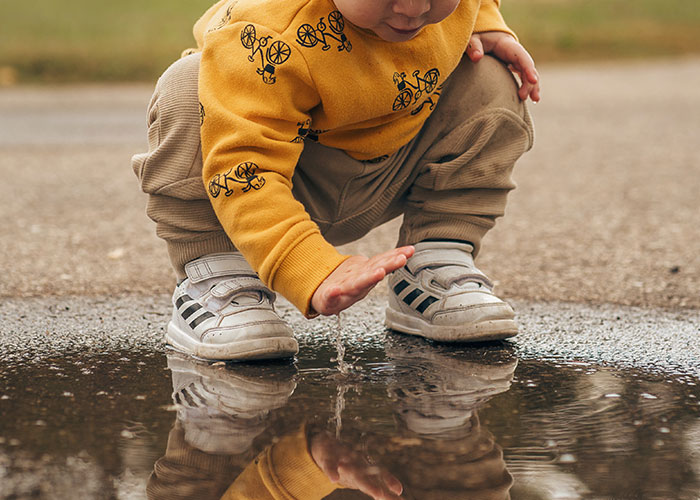Most parents can confirm that there are some weirdly hilarious phases that our little ones tend to go through. The ‘painting with poop’ phase or pretending to be their own imaginary friend. You know, the classics.
Well, here’s an interesting one for you. As u/thatogololo recently shared in the “Malicious Compliance” community, ever since she and her little sister watched 101 Dalmatians, all she wanted was to be part of the pack. And while that may sound cute and funny at first, it took a weird turn when she declared she was renouncing table manners and ‘human’ food. Oh, the mom wasn’t happy but she quickly took matters into her own hands by maliciously complying.
Listen beautiful relax classics on our Youtube channel.
After watching 101 Dalmatians, one child decided to fully dedicate herself and be just like the dotted puppers
Image credits: Ksenia Chernaya (not the actual photo)
Even if that means not giving a heck about table manners and ‘human’ food
Image credits: Bethany Ferr (not the actual photo)
Image source: thatogololo
Turns out, there are many benefits to reap from pretend play
Image credits: Lukas (not the actual photo)
In the realm of childhood, imagination reigns supreme, and the powers of make-believe hold an enchanting grip on the minds of our little ones. Step into their world, and you’ll witness a vibrant tapestry of characters, scenarios, and narratives woven together through the wondrous act of pretend play. There’s a pretty compelling episode on this in The Simpsons (titled “Lisa the Drama Queen”), where everyone’s favorite book nerd becomes obsessed with the imaginary land of “Equalia” after meeting a like-minded peer. What they go through is hardcore pretend play, something that made people slowly but steadily fall in love with classic tabletop games like “Dungeons And Dragons.”
Of course, there always comes a point where pretend play gets out of hand and you realize that it’s one thing to enjoy watching 101 Dalmatians and a whole different one to be on their diet.
However, that’s part of the beauty of putting yourself in someone else’s shoes (even if you’re your own imaginary friend, as confusing as it may sound for adults). According to Dr. Tracy Gleason, a professor of psychology at Wellesley College who has studied preschoolers’ imaginary play, pretending to be someone else is actually an essential developmental milestone that nurtures various cognitive, social, and emotional skills. Driven by an innate curiosity and an insatiable thirst for exploration, children venture into these imaginative territories to make sense of the world around them. “They’re doing a lot of exploring of what it’s like to be someone else, to feel something else, to interact in different ways with other people,” Gleason explained to New York Times.
With playtime among kids on the decline, the act of stepping into imaginary roles becomes increasingly essential for children
Image credits: Olya Harytovich (not the actual photo)
Meanwhile, there’s also plenty of emotional benefits of this immersive experience, according to Dr. Gleason. She suggests that pretend play allows children to explore their feelings, experiment with different roles, and make sense of their experiences. It may explain, then, why toddlers like to have pretend tea parties (it’s because they like to imitate their parents!). By assuming different identities, whether it’s a courageous superhero from some wicked anime or a mysterious insect whisperer (“Doctor Dolittle” but for insects), children gain a deeper understanding of their own emotions and learn to regulate them effectively.
Listen beautiful relax classics on our Youtube channel.
Moreover, pretend play serves as an outlet for creativity and self-expression, enabling children to unleash their boundless imagination. In a world where conformity often looms large, make-believe empowers them to transcend boundaries, challenge norms, and dream big. By constructing narratives, crafting stories, and exploring fantastical realms, they cultivate their unique voices, fostering a sense of agency and self-confidence.
However, in today’s digital revolution and ever-changing cultural landscape, the cherished role of pretend play in children’s lives is encountering fresh hurdles. With screens and virtual realities competing for their attention, there is a growing concern that the enchantment of imagination may fade—a concern that is already becoming evident. A recent study conducted by The Genius of Play, a nonprofit initiative committed to highlighting the essential role of play in child development, reveals that a staggering 75% of children are not receiving an adequate amount of playtime in the modern era.
OP’s story garnered some interesting reactions from the internet
This story also inspired others to share their similar experiences
The post “Mom Made Her Eat Like Our Dog”: Daughter Pretends She’s A Dog And Refuses To Eat Like A Normal Person, Her Mom Maliciously Complies first appeared on Bored Panda.
Source: boredpanda.com
























